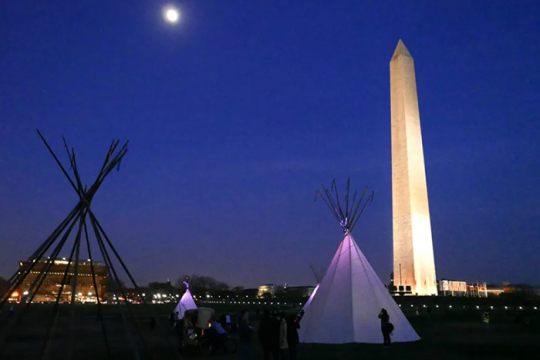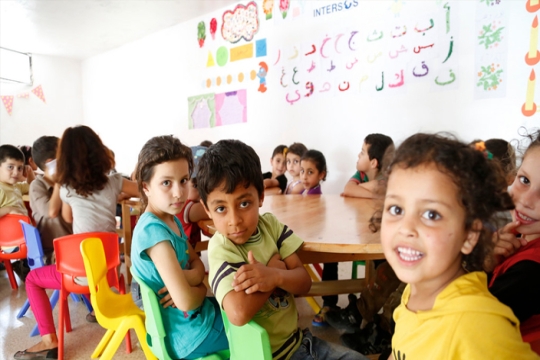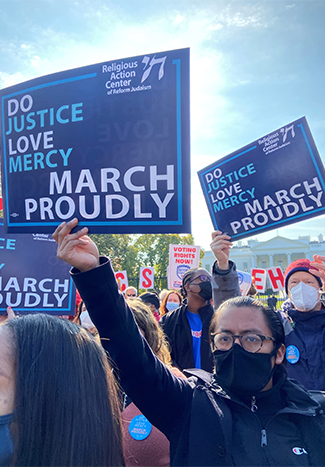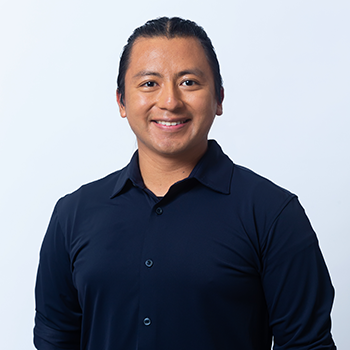“My name is Israel Harris, pronouns he/him/his, and I am the Racial Justice Legislative Assistant (LA) at the Religious Action Center (RAC).”
I have used this introductory phrase over a hundred times since August 2021. An addition many of my colleagues include is identifying the original Native lands of which we dwell. When in D.C., I am on Piscataway Nacotchtank Anacoston land, when in Brooklyn, NY, I am on Canarise Munsee Lenape land, and when I am home in Seattle, WA, I am on Duwamish Coast Salish Land. But there is one thing I don’t have to announce when I meet coalition partners, faith leaders, or advocacy organizers for the first time – I am a Person of Color (POC).
It is entertaining to watch people attempt to guess my ethnic background:
“Where are you from?”
“No, where are you really from?”
Especially in predominately white spaces, people often meet me with perplexed eyes, a dazed expression, and in rare cases, a vocal declaration of confusion. Humor is how I cope with the odd, uncomfortable nature I am sure many POCs experience daily. As a Jew of Color (JOC), this interaction can become even more unsettling.
“You don’t look Jewish?”
I grew up in a predominately white Ashkenazi Jewish community and have only recently begun my personal exploration of what it means to be a Hispanic, Latinx/Latine JOC. The RAC has taken a pivotal role in developing and strengthening the understanding of my own identity. Yes, I am sometimes still one of the only POCs in my Zoom meetings, and usually the only JOC at interfaith gatherings, but I have begun to find more people like me during my first year at the RAC.
In 2017, the RAC recommitted to “deepen our dedication to the pursuit of racial justice”, which laid the ground work for the Reform Movement’s Racial Justice Campaign and guided the selection criteria which led to the RAC’s launch of the Freedom to Vote Campaign to restore and protect the federal right to vote. This resolution provides the lens with which we examine our work at the federal, state, provincial, and local levels. It was this same commitment that helped bring me to the RAC.
In February of 2021, the RAC announced our partnership with the Jews of Color Initiative (JOCI), led by Executive Director Ilana Kaufman, to create a cohort of JOCs for the Eisendrath LA Fellowship through 2023, of which my colleague Shayna Han and I are proud to be a part of. And in November, we had the chance to meet and thank Ilana both virtually and in person. She came to the RAC to present JOCI’s “Beyond the Count Study”, the first to provide empirical data that expressed the perspectives, stories, and mere existence of JOCs. After some initial reflections of the results, we broke up into two affinity spaces – white and POC. Some might see this as self-segregation, but to me, it was a revolutionary experience. For the first time, in a group of Jews who didn’t have to adhere to the rules of the predominantly white communities they came from, the event became an opportunity to celebrate, reflect, and share our perspectives to our Jewish peers. But where do things go from here?
The RAC’s Racial Equity Diversity and Inclusion (REDI) department has played an important role in educating the Union of Reform Judaism (URJ) and our congregations about the experience of POCs and JOCs in North America. I have enjoyed attending more JOC affinity spaces where we can speak openly about the shared experiences we face in a world which continues to be plagued by systemic racism and white supremacy. More opportunities for JOCs and Jewish Adjacent People of Color (those of us who are not Jewish but are partnered with a Jew, part of a Jewish family, or are interested in Judaism) continue to be offered, but “the work” is only at the beginning stage. I look forward to the day when such opportunities for growth and reflection are a regular occurrence for everyone in the Reform Movement and beyond – we aren’t there yet.
Growing up, I never saw someone who looked like me on the board of a synagogue, school, or Jewish organization. I was raised through a color-blind approach, but often tokenized when circumstances were deemed “appropriate” – asking the one POC to speak for a whole community’s experience, or being the one brown kid on the brochure of my school to “prove diversity”. At the time, neither I nor my community understood the immaturity in this contradiction.
I take pride in the fact I can lead both a Friday night and Saturday morning service. I am proud that when in Israel, I can order food or bargain for items at the shuk (market). At the same time, in Jewish spaces, I have constantly felt the need to overprove myself because if my outward appearance isn’t “Jewish”, then my connection to Judaism isn’t standard either, right?
"The Holocaust Museum was powerful for me, but was it the same for you?”
This feeling of isolation and neglect is why it is so important to see POCs and JOCs in positions of leadership. How much longer will I have to wait to see more of this come into fruition?
I am grateful to have participated in a formal mentorship program that was offered through the Jewish Social Justice Roundtable. I can remember a high school teacher or a college professor who helped prepare me to enter the professional world, but an official mentorship program was a foreign concept to me. Educators should be expected to guide students, but additional opportunities to support POCs and JOCs are few and far between. I hope Jewish youth of Color gain the opportunities I have now that I longed for growing up.
As the Racial Justice LA, my work is rooted in my belief systems and experiences as a JOC. Not only do I get to be the person I never saw growing up, but I hope to help create more opportunities for those like me in the future. And as I finish up my first year at the RAC, I am eager to make my mark as I continue my work for another year to advocate to end the death penalty, pass legislation to study reparations for Black Americans, expand and protect the right to vote for all as we approach the primaries, and push for true policing reform. Those who are disproportionately harmed by these issues don’t have the benefit of growing up in communities who claim to be color blind. The world sees and treats us differently.
I look forward to the day JOCs don’t have to go searching to find affinity spaces. And I am eager to see how the JOCI partnership with the RAC will develop during my second year.
Related Posts

Native American Heritage Month: Continued Support for the Indigenous Population is a Necessity

Congress Must Expand the Child Tax Credit, a Powerful Tool Proven to Reduce Poverty



